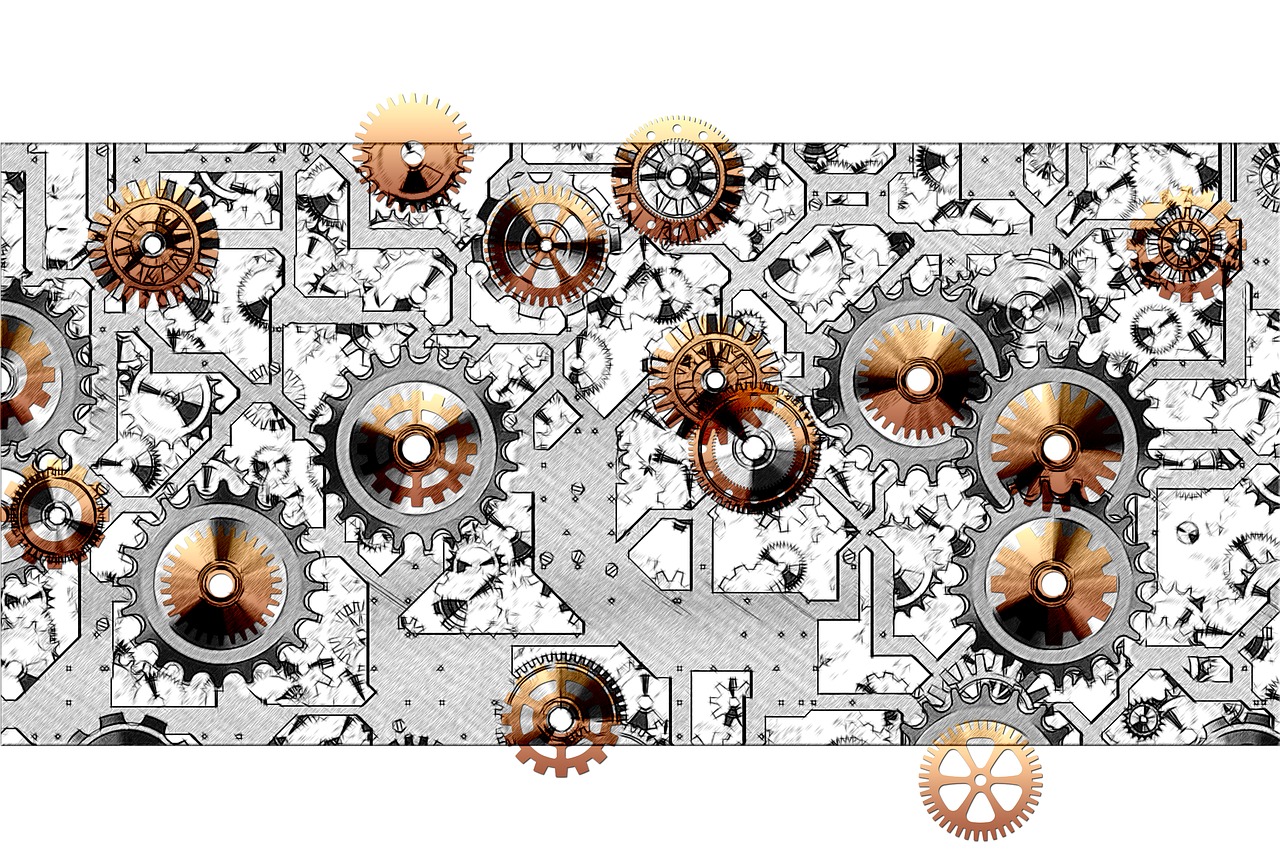
Are you planning to apply to the Kongu Engineering College? Well, if you are, then read on. This blog is here to help your decision-making process. For ease of access to key information, below I have put together a list of all the courses offered at KEC. But before we get there, let’s very briefly look at why should you choose KEC at all.
For starters, KEC is an extremely well-reputed school with over three decades of experience in the technical education field. Recognized internationally for its professional and career-oriented education, Kongu Engineering College prides itself on providing students with a blend of reason, passion, theory, and practice. KEC is also affiliated with Anna College in Chennai.
KEC describes its courses as connecting the spiritual and practical dimensions of intellectual life, within a supportive environment. I think that its vision and mission put these points together. To help you get a sense of what KEC’s core values are about, here are its vision and mission statements,
Vision: To be a centre of excellence for development and dissemination of knowledge in Applied science, Technology, Engineering and Management for the Nation and beyond.
Mission: We are committed to value-based Education, Research and Consultancy in Engineering and Management and to bring out technically competent, ethically strong and quality professionals to keep our Nation ahead in the competitive knowledge-intensive world.
Another reason to attend KEC is for the placement opportunities provided after you graduate. The placement cell makes arrangements for campus interviews with a number of different organizations.
In your final year, you will also be put through in-industry training. The campus placement training covers Human Resources, Technical, GD, C, C++ program, and a Written Test. This training is done in your pre-final year if you are an eligible candidate. Companies like Hyundai, Polaris, Accenture, and Tech Mahindra are part of KEC’s prominent recruiters.
Kongu also a bunch of cool clubs if you’re interested in extra circular activities. Some of these include a Photography Club, Modelling Club, and an Android Application Club! That last one sounds really fun!
I know, that was a rather brief statement to make about KEC. However, the purpose of today’s blog is to give you information on the courses offered. If you are still interested in learning a little more about KEC, check out their website. I would suggest doing so anyway, provided that KEC is in your list of schools to choose from.
Schools and Departments
Now, coming to the courses offered at KEC. There are seven separate schools within the college, each with its own set of departments. I’ll list these first, and then move on to break each one down by department. I have also included each department’s key objectives for a more holistic understanding.
- School of Building and Mechanical Sciences
- School of Chemical and Food Sciences
- Chemical Engineering
- Food Technology
- School of Electrical Sciences
- Electrical and Electronics Engineering
- Electronics and Instrumentation
- School of Communication and Computer Sciences
- Electronics and Communication Engineering
- Computer Science Engineering
- Information Technology
- School of Management Studies
- Management Studies
- School of Computer Technology and Applications
- Computer Applications
- Computer Technology- UG
- Computer Technology- PG
- School of Science and Humanities
- Math
- Physics
- Chemistry
- English
 School of Building and Mechanical Sciences
School of Building and Mechanical Sciences
1. Civil Engineering: The objective of Civil Engineering Department is to disseminate the knowledge above latest technologies in Civil Engineering to the students so that they cater the demand of builders/contractors and construction industry in and around the institution as well as to the needs of the country and abroad.
Programmes:
- B.E (Intake: 240)
- M.E- Construction Engineering and Management (Intake: 18)
- M.E- Structural Engineering (Intake: 18)
- PhD
2. Mechanical Engineering: Practice Mechanical Engineering in the general stems of design, manufacture, service and allied engineering sectors. Habituate continuous learning and carry out research and development in science, engineering and technology that supports career growth. Exhibit ethical code of conduct in a professional manner to solve real-time multi-disciplinary engineering projects. Demonstrate managerial and leadership capabilities that support the economic development of firms as well as society
Programmes:
- B.E (Intake: 240)
- M.E- Engineering Design (Intake: 18)
- M.E- CAD/CAM (Intake: 18)
- PhD
3. Mechatronics Engineering: Utilize the fundamental knowledge of basic sciences and engineering to succeed in their professional career. Analyze, design and develop Mechatronics Engineering based products and processes for real-world applications. Exhibit professional and managerial capabilities with ethical conduct and an aptitude for continuous learning.
Programmes:
- B.E (Intake: 120)
- M.E- Mechatronics (Intake: 18)
- PhD
4. Automobile Engineering: Establish an admirable academic centre through professional instructive techniques to build up quality Automobile engineers to meet world-class requirements. Inculcate the knowledge through seminars, conferences, research and unite with industries to provide state of the art technologies. Develop educational pathways to promote society
Programmes: B.E (Intake: 60)
School of Chemical and Food Sciences
1.Chemical Engineering: Exhibit professional competency in the design and development of chemical products, Processes, and equipment in chemical and allied industries. Perform research and development work by utilizing experimental skills. Mathematical tools and applied software and simulation practices. Demonstrate interpersonal skills and leadership qualities and contribute to the solution of multidisciplinary problems. Contribute to national and global economic growth through continuous education and by following socially responsible practices.
Programmes:
- B. Tech (Intake: 120)
- M. Tech- Chemical Engineering (Intake: 18)
- PhD
2.Food Technology: Apply principles of basic sciences, and engineering to succeed in their professional career. Analyze, design and develop food processes/products that are technically feasible, economically viable and socially relevant. Exhibit professional and ethical code of conduct and an aptitude for continuous learning for catering to the ever-changing needs of the society.
Programmes:
- B. Tech (Intake: 60)
- M. Tech- Food Technology (Intake: 18)
School of Electrical Sciences
1.Electrics and Electronics Engineering: Succeed in professional career by utilizing fundamental knowledge of basic sciences and engineering. Design, simulate, analyze and develop Electrical and Electronics Engineering based products which are reliable, cost-effective and safe. Demonstrate communication skills, teamwork, ethics, codes of professional practise as well as an aptitude for continuous learning.
Programmes:
- B.E (Intake: 120)
- M.E- Applied Electronics (Intake: 25)
- M.E- Power Electronics and Drives (Intake: 18)
- PhD
2. Electronics and Instrumentation Engineering: Excel in professional career and higher education using their fundamental knowledge in mathematical and engineering principles. Analyze, design, develop and maintain the instrumentation systems of an industry and also offer solutions that are technically feasible, economically viable and socially relevant. Exhibit Professional and Ethical code of conduct, communication skills, teamwork and lifelong learning to resolve societal issues
Programmes:
- B.E- Electronics and Instrumentation Engineering (Intake: 120)
- M.E- Control and Instrumentation Engineering (Intake: 18)
- PhD
 School of Communication and Computer Sciences
School of Communication and Computer Sciences
1. Electronics and Communication Engineering: Succeed in industry and higher education by applying knowledge of mathematics, science and engineering principles. Analyze, design and implement electronics-based solutions to meet the real-world problems, with a constant update of domain knowledge. Demonstrate Soft skills, Professional and Ethical values and an aptitude for lifelong learning needed for a successful professional career.
- B.E (Intake: 240)
- M.E Communication Systems (Intake: 18)
- M.E VLSI Design (Intake: 18)
- M.E Embedded System (Intake: 18)
- PhD
2. Computer Science and Engineering: Utilize the fundamental knowledge of basic sciences and engineering to succeed in their professional career. Analyze, design, develop and verify computer-based solutions to real-world problems. Exhibit soft skills, ethical code of conduct and ability for life-long learning.
- B.E (Intake: 240)
- M.E CSE (Intake: 25)
- PhD
3. Information Technology: Excel in industry and higher education by applying fundamental knowledge in engineering principles. Analyze, design and implement Information Technology based solutions to meet the real-world problems. Exhibit Soft skills, Professional and Ethical values and thrust for continuous learning for a successful professional career.
Programmes:
- B. Tech (Intake: 120)
- M. Tech- Information Technology (Intake: 18)
- M. Tech- Information Technology (Information and Cyber Warfare) (Intake: 18)
- PhD
School of Management Studies
1. Management Studies: Mould the students into competent and creative managers to meet the growing global challenges. Impart value-based education to the students and enrich their knowledge. Achieve an effective interaction between industry and institute for mutual benefits. Establish an environment conducive for world-class research to contribute for long term benefits to society.
Programmes:
- MBA
- PhD in Management
School of Computer Technology and Applications
1. Computer Applications: Develop intellectual excellence and creativity. Provide adequate facilities for postgraduate study and research. Improve the utilization of available resources. Provide necessary strengths to enable the students to innovate and become entrepreneurs through technical advancement. Establish an environment conducive for world-class research to contribute for long term benefits to the society through technical advancements
Programmes: MCA
2. Computer Technology UG: This branch of study focuses on providing the knowledge and skills necessary to develop new paradigms for the design and development of state-of-the-art software projects by incorporating the technologies of Computer Science.
Programmes:
- B.Sc – Computer Systems and Design (Intake: 60)
- B.Sc – Information Systems (Intake: 60)
- B.Sc – Software Systems (Intake: 60)
3. Computer Technology PG: To develop Intellectual excellence and creativity. To provide adequate facilities for postgraduate study and research. To improve the utilisation of available resources. To provide the necessary strength to enable the students to become innovative Entrepreneurs.
Programmes: M.Sc Software Systems (Intake: 60)
 School of Science and Humanities
School of Science and Humanities
1. Mathematics: Department of Mathematics is committed to making the students understand the basic concepts Science and especially Mathematics and apply in the field of Engineering and Technology effectively. To impart basic concepts of science, establish the department as a research centre and cater to the needs of the student community towards the development of the nation. To fulfil the objective, over the years the department has created an excellent infrastructure, laboratories, and a dedicated team of faculty.
Programmes: PhD
2. Physics: The Department aims to disseminate knowledge and skill-based understanding of the concepts of science, especially in areas relevant to Engineering and Technology. The research centre in the department provides an active and dynamic research atmosphere where research on futuristic areas in physics is pursued. To be a centre of excellence for the dissemination of knowledge in physics, and promote innovation for academic and professional success, for the welfare of our nation and beyond.
Programmes: PhD
3. Chemistry: To make the students understanding the basic concepts of Chemistry which is highly essential and to the apply concepts in the field of Engineering and Technology effectively. To support the students in becoming quality engineers and scientists in various branches of Engineering and Technology. To support our students in their placements in reputed research organizations and industries. To carry out applied research in the field of environmental, organic, corrosion and surface chemistry.
Programmes: The Department as a Research Centre provides facility leading to a,
- PhD in- Environmental Chemistry, Coordination Chemistry, Surface Chemistry & Adsorption, Nanotechnology, and Material Science.
4.English: Produce world-class professionals with adequate soft skill and communication skills. To train students to master the art of communication, develop their language skills and make them “ Industry ready”.To provide students with a curriculum that will help them to develop their language skills.
Programmes: PhD
- B.Sc Computer Systems and Design: 3 years
- B.Sc Information Systems: 3 years
- B.Sc Software Systems: 3 years
- M.Sc Software Systems: 5 years
If you’re interested, Kongu has some great research opportunities. For instance, The Research and Development Cell of Kongu Engineering College monitors research programs offered by Anna University. The Cell evaluates candidates admitted for Research Programmes in all the departments!
KEC has 16 research centres in which faculty and students from various institutions are given the opportunity to enhance their qualifications in their respective disciplines.
 Research Centre Approved Disciplines:
Research Centre Approved Disciplines:
- Civil Engineering
- Mechanical Engineering
- Mechatronics Engineering
- Electrical and Electronics Engineering
- Electronics and Instrumentation Engineering
- Electronics & Communication Engineering
- Computer Science and Engineering
- Information Technology
- Chemical Engineering
- Food Technology
- Management Studies
- Computer Applications
- Mathematics
- Physics
- Chemistry
- English
That’s all for now, hope this helps! Looks like there are some interesting options. Food technology sounds especially intriguing. Thank you for reading!
Already know which college you want to go to? Don’t know how to pay? No worries! Download StuCred and move forward with the education of your dreams!







